


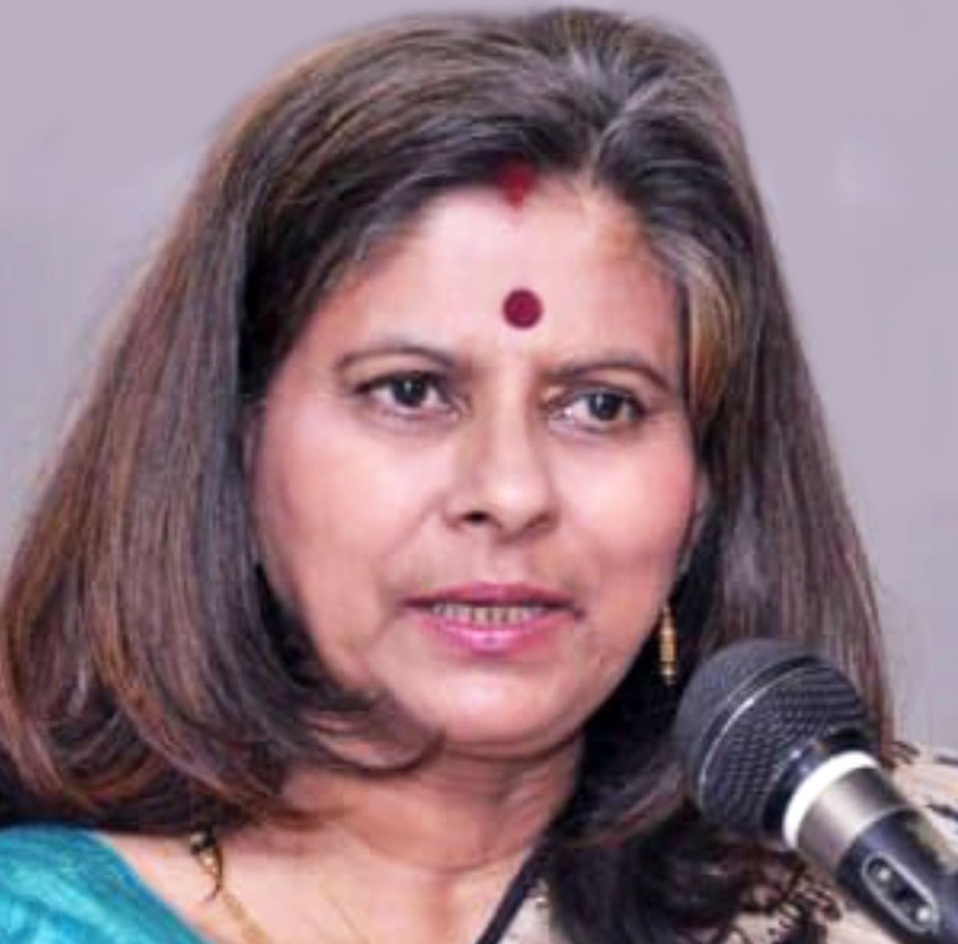
इला कुमार भारत की रचनाओं के मध्य छह काव्य-संग्रह (1970-2021) और चुनी हुईं कविताओं का संग्रह (2015), एक उपन्यास (2005) एवं एक कहानी-संग्रह स्थित है.
छान्दोग्य उपनिषद की कहानियों का पुनर्लेखन , उपनिषद की कहानियां और ‘स्टोरीज आफ़ उपनिषद‘ तथा ‘हमारे समय में उपनिषद‘ प्रकाशित हैं .
इनकी कवितायें अनेको भाषाओ- बंगला, पंजाबी, उड़िया, अंग्रेजी एवं जापानी भाषा में अनुवादित हैं . काव्य-संग्रह ‘जिद मछली की‘ अंग्रेजी में ‘रिज्योलुशन आफ फिश‘ के नाम से 2011 में अनुवादित .
हिन्दू-हिन्दुत्व और जर्मन कवि रेनये मारिया रिल्के की कविताओं का अनुवाद ‘टूटे पंखों वाला समय‘ और चीनी दार्शनिक लाओ त्शु की सूक्तिओ का अंग्रेजी से हिंदी में अनुवाद .
‘हमारे समय में उपनिषद‘ 2018 में और काव्य-संग्रह ‘ विस्मृति के बीच ‘ 2021 में प्रकाशित. ' टूटे पंखों वाला समय ' (रिल्के की कविताओं का अनुवाद ) का दूसरा संस्करण 2022 में प्रकाशित.
इनकी शादी मृत्युञ्जय कुमार से हुई और पति के तबादलों के कारण इन्होंने भारत का भ्रमण किया, भारतीयता को समझा.
इला कुमार की रचनायें बहुमुखी आयामों में फैली हुई हैं , लेकिन सभी के बीच जो एकसूत्रत्व है वह है द्रष्टा भाव से हर संवेगित तथ्य को निहारने वाले तत्व का, जो आत्म को निरुपित करता चलता है.
सम्मान एवं पुरस्कार: मुक्तिबोध पुरस्कार/नागपुर (2007), विश्व हिंदी प्रचेता अलंकरण/कानपुर (2013), साहित्य श्री सम्मान/सिंगापुर (2014), विंध्य न्यूज नेट वर्क सम्मान (2015), साहित्य सम्मेलन शताब्दी सम्मान/पटना (2019).
ila kumar@Kavita Kumar : B.Sc (Hons), M.Sc. (Physics), B.Ed.,L.Lb
web site : www.ilakumar.org mbl : 8527227336
ILA KUMAR is a Hindi poet, writer , translator & Upnishadvetta from India,
Born on 1st March 1956 in Muzzafarpur, a city in the north Indian region of Bihar, ila’s father was a reputed lawyer. ila graduated as Bachelor of Science student majoring in physics from University of Bihar and later did her Masters in Physics honors from the same school.
She also did her degree in Law, about which she tells, “When I started writing articles on education and social problems, I realized, somewhere all these problems have a solution in law and therefore, I studied law.” She wrote her first poem at the young age of 13. Since then she kept on writing poems but never published. ila got married to Mritieunjay Kumar, an Engineer in Indian Railways, in 1977. “He has encouraged me a lot” ila tells about her husband, “I wasn’t confident when it came to show my writings to the world. Mr. Kumar’s support has been precious to my writings.” Her first book‘Zid Machli Ki’, a poetry collection, was published in 1995. She dedicated it to her husband.
Chronologically, these were not earliest of her poems. Her earliest poems written between 1968 to 1970, is still unpublished.
Her other poetry collections ‘Kartik Ka Pehla Gulab’, and ‘Tehera Hua Ehsas’ were published later. Collection of her four books included three above mentioned books and ‘Kinhi Ratriyon mey’, chronologically her second set of poems.ila’s writings illustrate her interests in variety of subjects.
Translator Dhananjay Jog writes about ila’s poetry “When I first read ila kumar’s poetry, I was fascinated by her language. The honesty, which one can feel through the words, is overwhelming. Another important aspect of her poetry is keen observation.” He further writes “Her profound study of Vedanta philosophy and her own spiritual quest pervades her poetry. She tries to wrestle with the fundamental question of human existence and man’s relationship with the divine.”
ila talks about vedant “I had always been a serious reader of vedant. It started showing in my writings. It wasn’t intentional but when I finished writing, I realized that it was pure vedant.” An excellent example of such writing is the poem zid machli ki (translated in English as Resolution of Fish), wherein the essence of entire poem lies in the last three lines.
They say “In a poet’s life, they would write one novel. And that would be autobiography.” True! Indian Railways serves as the backdrop of her only novel Kriti- ka. Sometimes by force, sometimes at will, owing to her husband’s job, ila travels a lot. “I have always enjoyed long train journeys. I get undisturbed stretches of 8-9 hours which I have always utilized for writing.”
A blessing in disguise was Mr. Kumar’s transfer from Nagpur to Kolkata. With their all belongings packed, she was left with a few books of Rainer Maria Rilke. It was here, in a one room rest house of BNR, she decided to translate the German poet. ‘Tute pankon wala samay’ was the product of this decision.
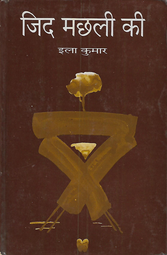
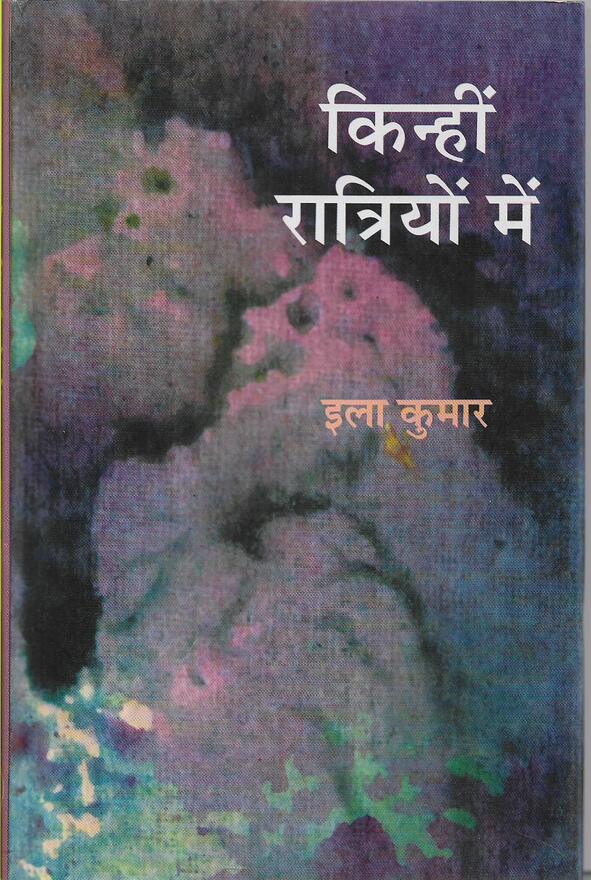
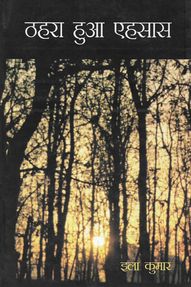
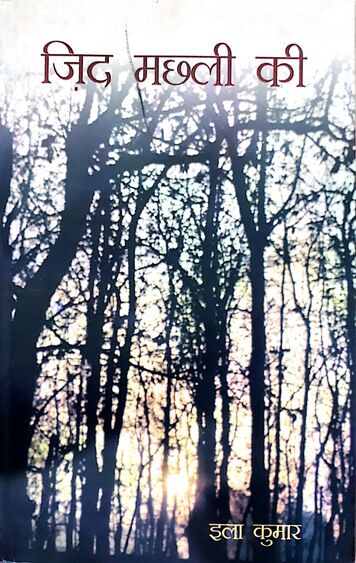
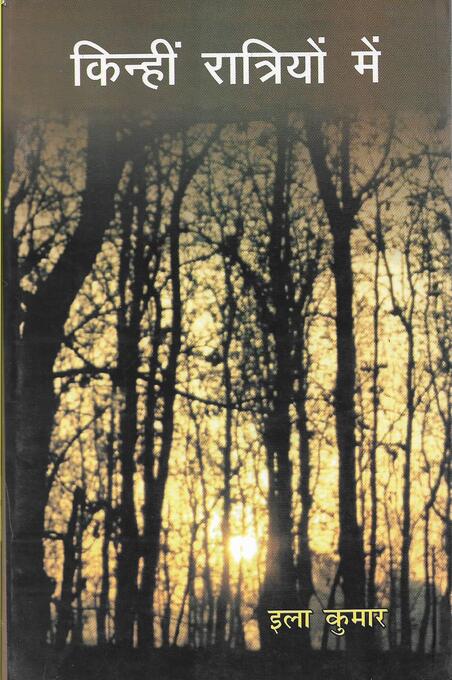
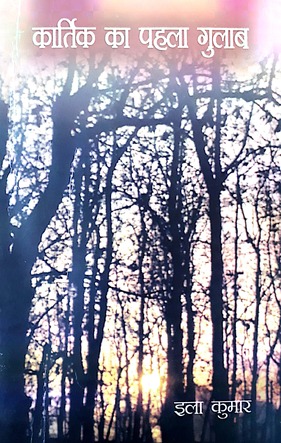
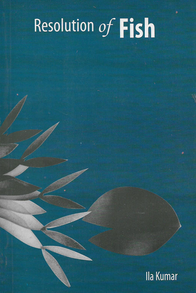
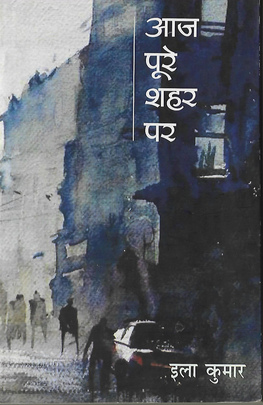
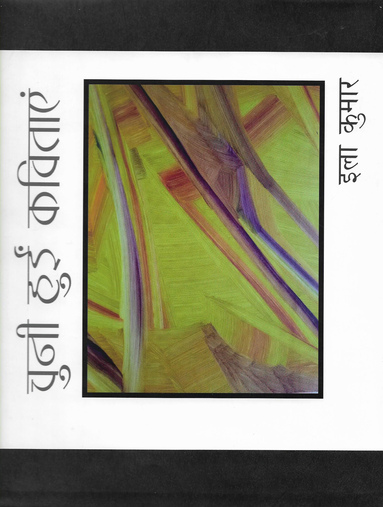
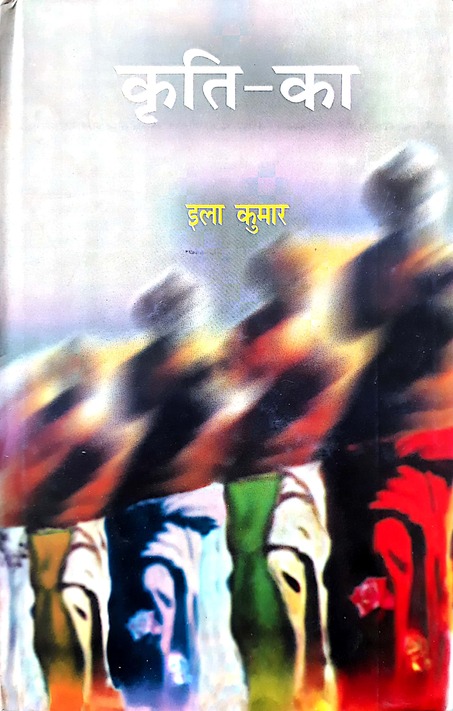
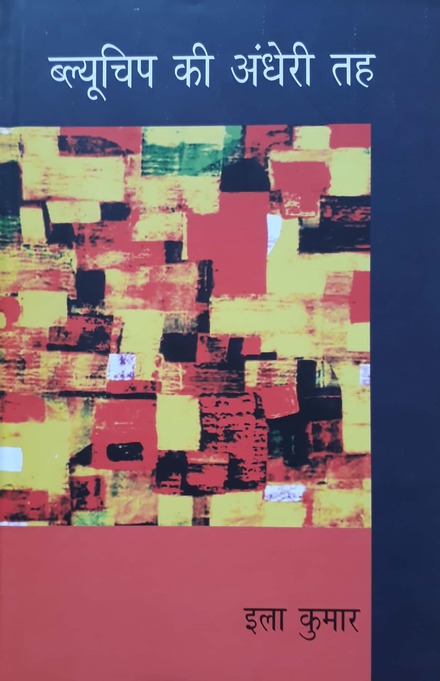
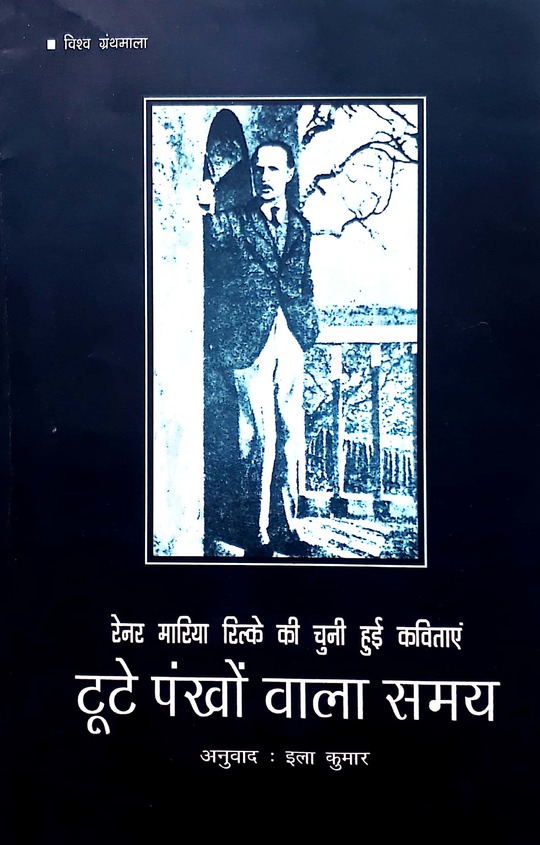
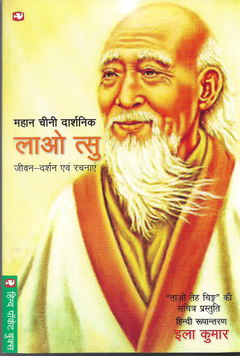

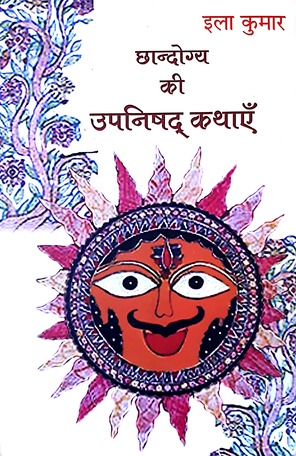



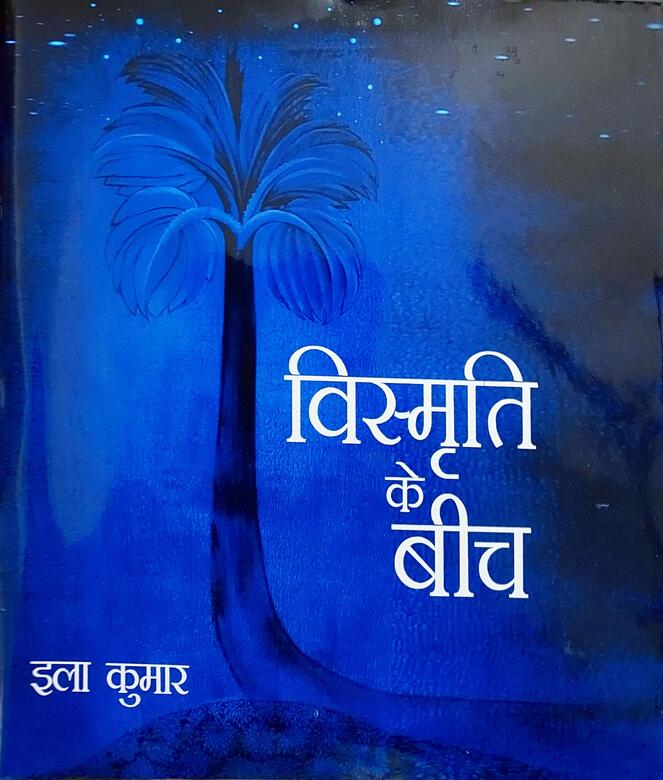


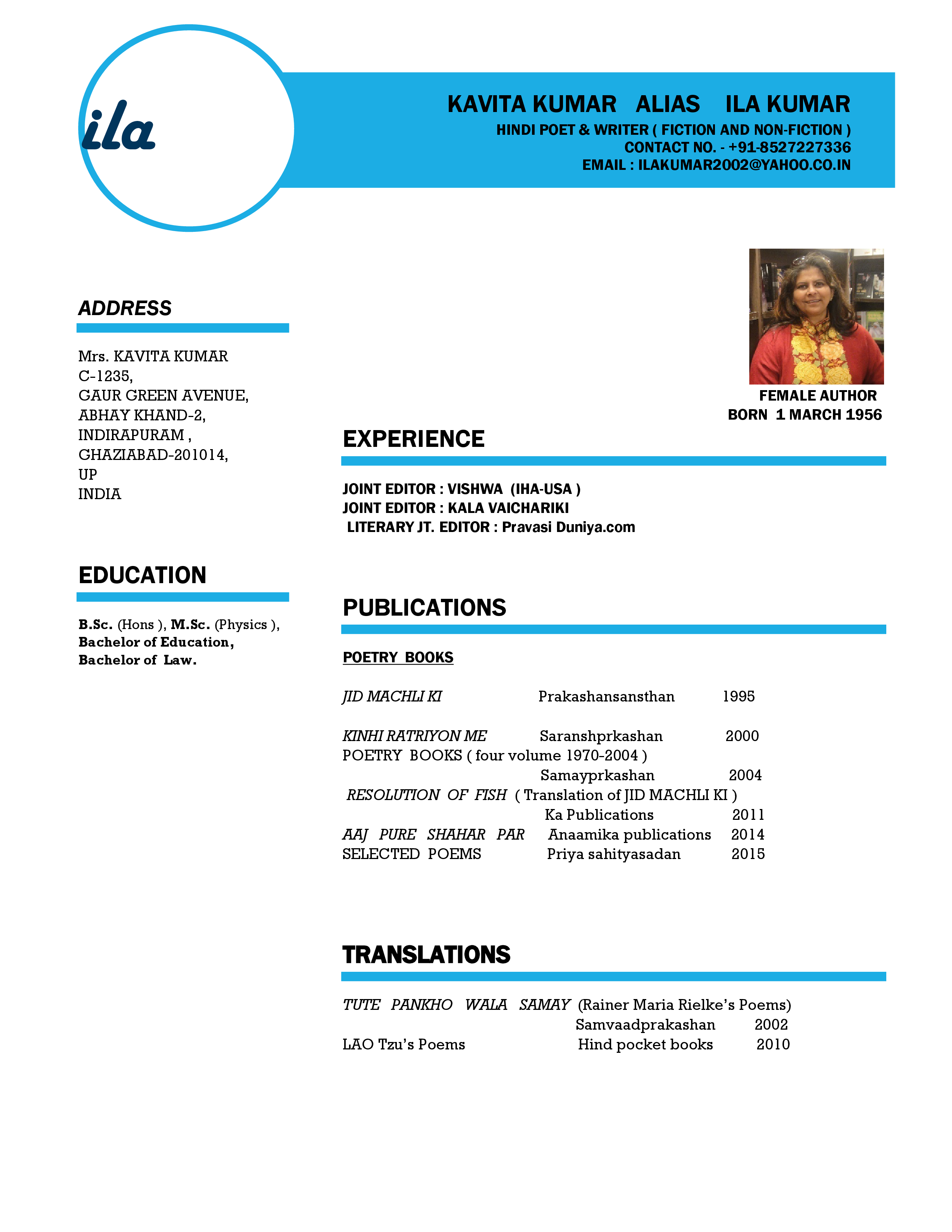
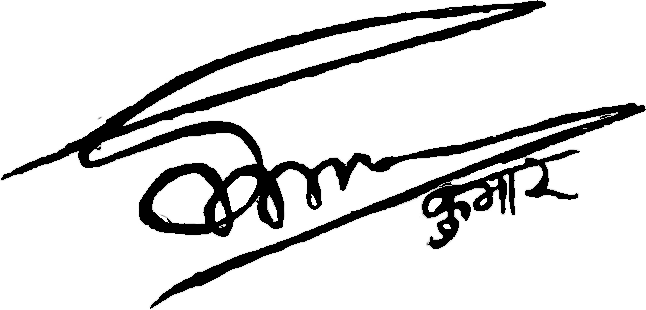
ila kumar is a Hindi poet, writer and a translator from India, whose works include four books on poetry, a book on gardening and a novel. She has also translated German poet Rainer Maria Rilke’s poems and Chinese Philosophy Tao Te Ching’s verses from English to Hindi. Her poems have been translated in several Indian languages including Bengali, Punjabi etc. The book of poem collection named ‘Zid Machli Ki’ was translated in English as‘Resolution of Fish’. Her numerous articles and poems are regularly published in national, international and e-magazines.
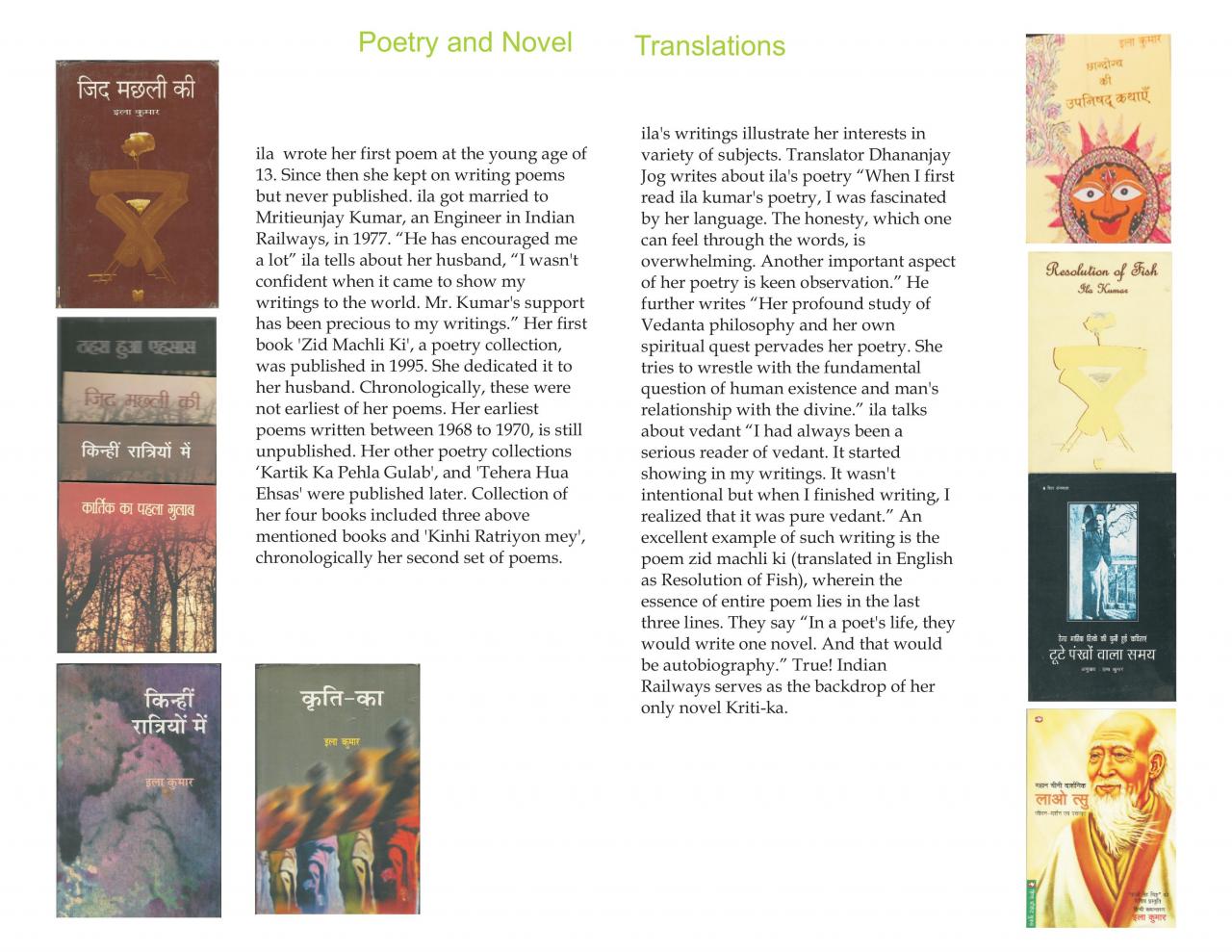
Born on 1st March 1956 in Muzzafarpur, a city in the north Indian region of Bihar, ila’s father was a reputed lawyer. ila graduated as Bachelor of Science student majoring in physics from University of Bihar and later did her Masters in Physics honors from the same school. She also did her degree in Law, about which she tells, “When I started writing articles on education and social problems, I realized, somewhere all these problems have a solution in law and therefore, I studied law.” She wrote her first poem at the young age of 13. Since then she kept on writing poems but never published. ila got married to Mritieunjay Kumar, an Engineer in Indian Railways, in 1977. “He has encouraged me a lot” ila tells about her husband, “I wasn’t confident when it came to show my writings to the world. Mr. Kumar’s support has been precious to my writings.” Her first book‘Zid Machli Ki’, a poetry collection, was published in 1995. She dedicated it to her husband. Chronologically, these were not earliest of her poems. Her earliest poems written between 1968 to 1970, is still unpublished.
Her other poetry collections ‘Kartik Ka Pehla Gulab’, and ‘Tehera Hua Ehsas’ were published later. Collection of her four books included three above mentioned books and ‘Kinhi Ratriyon mey’, chronologically her second set of poems.ila’s writings illustrate her interests in variety of subjects. Translator Dhananjay Jog writes about ila’s poetry “When I first read ila kumar’s poetry, I was fascinated by her language. The honesty, which one can feel through the words, is overwhelming. Another important aspect of her poetry is keen observation.” He further writes “Her profound study of Vedanta philosophy and her own spiritual quest pervades her poetry. She tries to wrestle with the fundamental question of human existence and man’s relationship with the divine.” ila talks about vedant “I had always been a serious reader of vedant. It started showing in my writings. It wasn’t intentional but when I finished writing, I realized that it was pure vedant.” An excellent example of such writing is the poem zid machli ki (translated in English as Resolution of Fish), wherein the essence of entire poem lies in the last three lines. They say “In a poet’s life, they would write one novel. And that would be autobiography.” True! Indian Railways serves as the backdrop of her only novel Kriti-ka. Sometimes by force, sometimes at will, owing to her husband’s job, ila travels a lot. “I have always enjoyed long train journeys. I get undisturbed stretches of 8-9 hours which I have always utilized for writing.” A blessing in disguise was Mr. Kumar’s transfer from Nagpur to Kolkata. With their all belongings packed, she was left with a few books of Rainer Maria Rilke. It was here, in a one room rest house of BNR, she decided to translate the German poet. ‘Tute pankon wala samay’ was the product of this decision.
